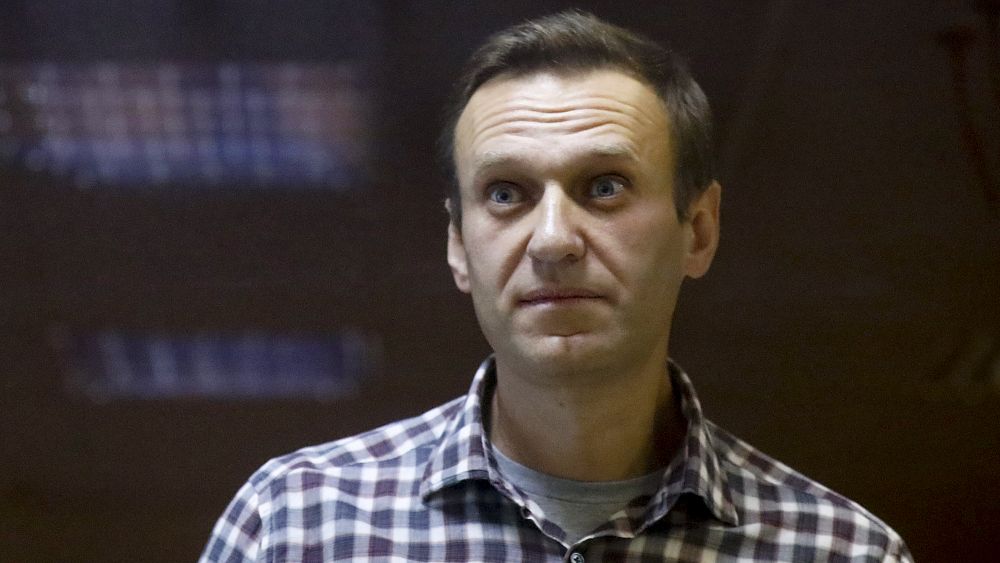
Jailed Kremlin critic Alexei Navalny called on the West to crack down on corruption on Thursday as he marked the first anniversary of his poisoning.
Navalny, 45, argued in an op-ed written from his prison cell that corruption is not just a domestic problem for countries including Russia, Eritrea, Myanmar and Venezuela but that “it is almost invariably one of the main causes of the global challenges that face the west”.
He bemoaned that most leaders see corruption as a “secondary agenda” item and yet blame it for failures, “whether their own or, more commonly, those of their predecessors.”
He called for the West to adopt five “realistic, easy to implement” steps to combat corruption. These include the creation of a special category of “countries that encourage corruption” to allow for blankets sanctions against them, and “enforced transparency” by publishing any contract between western companies and their partners with countries representing corruption risks if the contracts are connected in any way to the state, its official, or their relatives.
He also called for more sanctions against individuals, including “oligarchs, primarily those in the entourage of Putin”, and for countries with already-existing tools against foreign corruption — such as the US, UK and Germany — to use them more effectively.
“The sad fact is that even western law enforcement agencies treat corrupt foreign officials with kid gloves,” he wrote.
“No money, no soldiers, no reconfiguration of industry or world politics are needed in order to start taking action. Only political will — which, unfortunately, is often in short supply,” he added.
His comments were published in several European outlets, including The Guardian (UK), Le Monde (France), and Frankfurter Allgemeine Zeitung (Germany) on Thursday. Navalny was poisoned with the Novichok nerve agent on August 20, 2020, as he was traveling across Russia to support opposition candidates ahead of parliamentary elections.
‘A pre-planned provocation’
He was airlifted to Germany, where he spent five-month convalescing and was arrested by Russian authorities on the day he returned to the country and later sentenced to 2 and a half years behind bars for not respecting the terms of his parole over a previous conviction for embezzlement while being treated in Berlin.
He has accused Russian President Vladimir Putin of orchestrating his botched assassination, which the Kremlin has firmly denied. Moscow also says it doubts that its most ferocious critic was actually poisoned and accused the west of “Russiaphobia”.
The Russian Foreign Ministry said for instance on Friday that “the actions taken by the German authorities over the past 12 months clearly show that a pre-planned provocation was carried out against Russia.”
In a statement released earlier this week, it said the accusations were “unsubstantiated” despite several laboratories confirming that traces of Novichok were found in samples from Navalny.
It reiterated accusations that Germany has failed to produce any evidence and suggested Berlin and the Organisation for the Prohibition of Chemical Weapons acted together to “mess things up in order to hide the truth.”
Finally, it sought to discredit Navalny as the country’s most prominent pro-democracy advocate, describing him as a ” blogger” and accusing the West of picking up “fake news concocted” by his team “in order to engage in the internal affairs of our country.”
Russian authorities also recently ordered Navalny’s Anti-Corruption Foundation to close, after labelling it an “extremist” organisation.
Relations between Russia and the European Union, already strained since Moscow’s illegal annexation of Crimea in 2014, deteriorated further after the attempt on Navalny’s life. Brussels imposed sanctions on prominent Russian officials over the poisoning.
German Chancellor Angela Merkel is scheduled to meet with Putin in Moscow on Friday for their last in-person meeting before she steps down next month. She is expected to bring up the treatment of Navalny, among other topics including Ukraine, Belarus, the Nord Stream 2 pipeline, and the latest developments in Afghanistan.
THE ROTTEN FISH: CAN OF WORMS OPENED OF APC & TINUBU'S GOVERNMENT OVER NIGERIA'S ECONOMIC DOWNTURN
WATCH THE CRITICAL ANALYSIS AND KNOW THE RESPONSIBLE PARTIES TO BLAME FOR NIGERIA'S ECONOMIC CHALLENGES, WHILE CITIZENS ENDURE SEVERE HARDSHIPS.Watch this episode of ISSUES IN THE NEWS on 9News Nigeria featuring Peter Obi's Special Adviser, Dr Katch Ononuju, 9News Nigeria Publisher, Obinna Ejianya and Tinubu Support Group Leader, McHezekiah Eherechi
The economic crisis and hardship in Nigeria are parts of the discussion.
Watch, leave your comments, and share to create more awareness on this issue.
#9NewsNigeria #Nigeria #issuesInTheNews #politics #tinubu THE ROTTEN FISH: CAN OF WORMS OPENED ...
DON'T FORGET TO SUBSCRIBE AND LEAVE YOUR COMMENTS FOR SUBSEQUENT UPDATES
#9newsnigeria #economia #economy #nigeria #government @9newsng
www.9newsng.com
